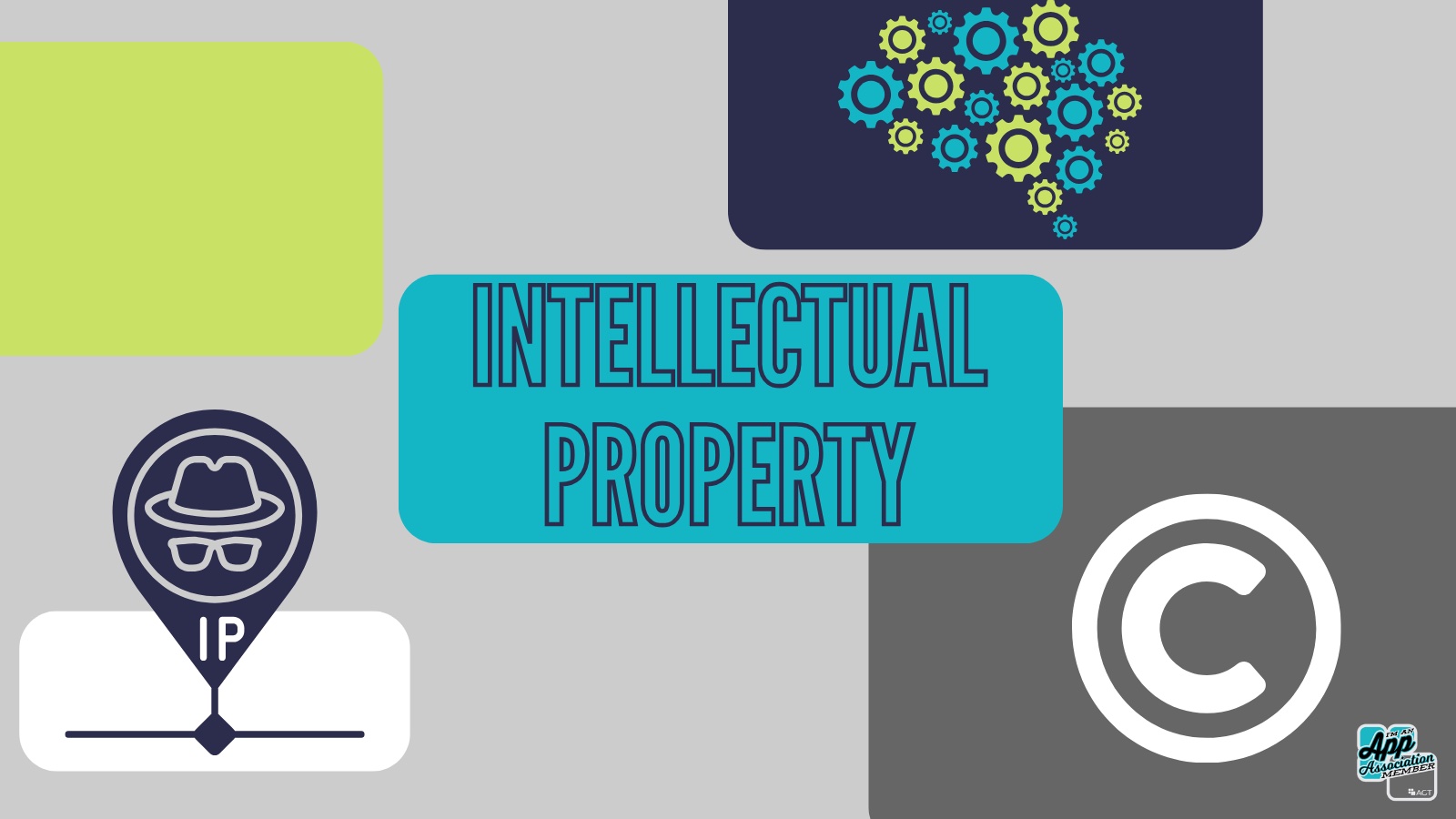As the European Commission continues implementation of the Digital Markets Act (DMA), small and medium-sized enterprises (SMEs) in the app economy face new challenges and risks. Recently, members of ACT | The App Association met with the Commission to express deep concerns over potential intellectual property (IP) protection risks under the DMA’s rules. Highlighting the need to maintain current IP protections, our members emphasised developers’ vulnerability in a rapidly changing marketplace structure and discussed how digital platforms could enhance their safeguards.
‘IP protections, such as those available to developers on Apple’s App Store, are essential for small business owners. It ensures our innovative ideas and hard work are safeguarded from infringement and piracy. This protection allows us to focus on growth rather than legal battles. With the implementation of the DMA and the rise of alternative app marketplaces, small businesses can expect to face significant challenges in maintaining the same level of IP protection. These newer platforms may lack robust Digital Rights Management (DRM) systems and enforcement mechanisms, forcing small businesses to divert scarce resources towards legal defence and IP management, which we often cannot afford’. – vaic.at Software
IP protection and platforms
Developers have traditionally relied on the infrastructure and services from established app stores to assist in managing and addressing IP violations with intention and clarity. Much like brick-and-mortar shops, which allow sellers to keep track of where their products are sold and how to address issues surrounding those physical products, trusted platforms provide developers with an environment where they can monitor, manage, and respond to issues surrounding their digital products.
For startups and larger enterprises alike, resolving IP issues with a few established platforms is far more manageable than navigating an array of different app stores, third-party outlets, and decentralised platforms. By preserving a unified security framework, platforms can ensure that developers have reliable, accessible avenues to protect their intellectual property and continue fostering innovation with confidence.
‘As an SME, we rely on the security and trust of established platforms. Sideloading requirements force us into a maze of platforms with varying security standards, leaving us vulnerable to IP theft. This threat endangers our very survival. These new requirements shatter the secure environment and consumer trust on which small developers desperately depend’. – Wello
While established platforms currently offer a solid foundation of IP protection, there is room to bolster these measures further. The challenge lies not only in the increasing sophistication of platform-provided IP theft monitoring tools and services but also in the structural vulnerabilities introduced by the DMA. The DMA’s promotion of alternative app stores and sideloading threatens to fragment the secure ecosystem essential for robust IP protection. In order for the platforms to continue to roll out effective, up-to-date IP services, maintaining a controlled, secure environment is crucial.
Member spotlight: Youdle
The perils of inadequate IP protection are starkly illustrated by the experience of Kontji and Johnita Anthony from member company Youdle. Their ordeal with a contractor who stole their IP and launched a copycat app delayed their business launch and posed severe risks to their brand and overall consumer trust. Their concerns highlight a broader potential fear among developers: the daunting prospect of dealing with IP theft across numerous, less-regulated platforms evolves into more than an IP issue. When it goes on too long, it becomes a brand reputation problem.
‘Dealing with intellectual property theft was a nightmare. A contractor we hired stole our intellectual property and created a copycat app. We spent 24 exhausting months navigating back and forth with Apple and Google to resolve the issue while the bad actor continued to make money using our IP. The fear of our brand’s reputation being tarnished and the potential misuse of consumer data kept me up at night. If this process had involved several app stores or third-party and decentralised platforms, it would have been exponentially more challenging and detrimental to our brand and our bottom line. The risk of copycat apps and eroded consumer trust is a significant concern that must be addressed’. – Youdle
Moving forward
DMA implementation marks a pivotal moment for the digital economy, introducing both opportunities and risks in the app store ecosystem. We hope the DMA’s initiative to diversify app store platforms will not dilute standards that underpin the trust and reliability appreciated by developers and consumers alike.
Through future market investigations, we are hopeful that the European Commission acknowledges the delicate balance required to nurture competition without compromising the secure frameworks that have enabled SMEs to flourish. We appreciate that the European Commission took the time to meet with us and listen to the stories of our SME members. It’s key that policymakers continue to make space for small tech businesses at their table, fostering an inclusive and collaborative approach. We and our members will continue to advocate for regulatory environments that combat IP theft and malware, fostering a secure environment for innovation.
